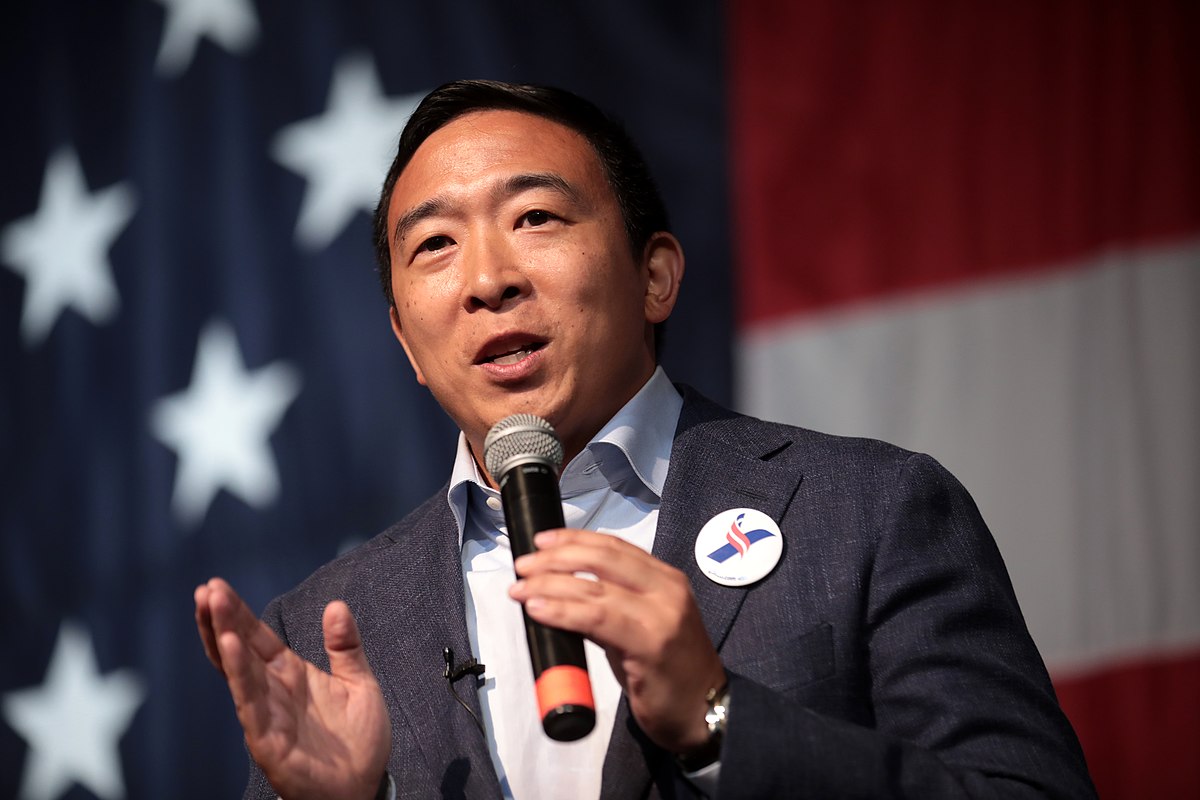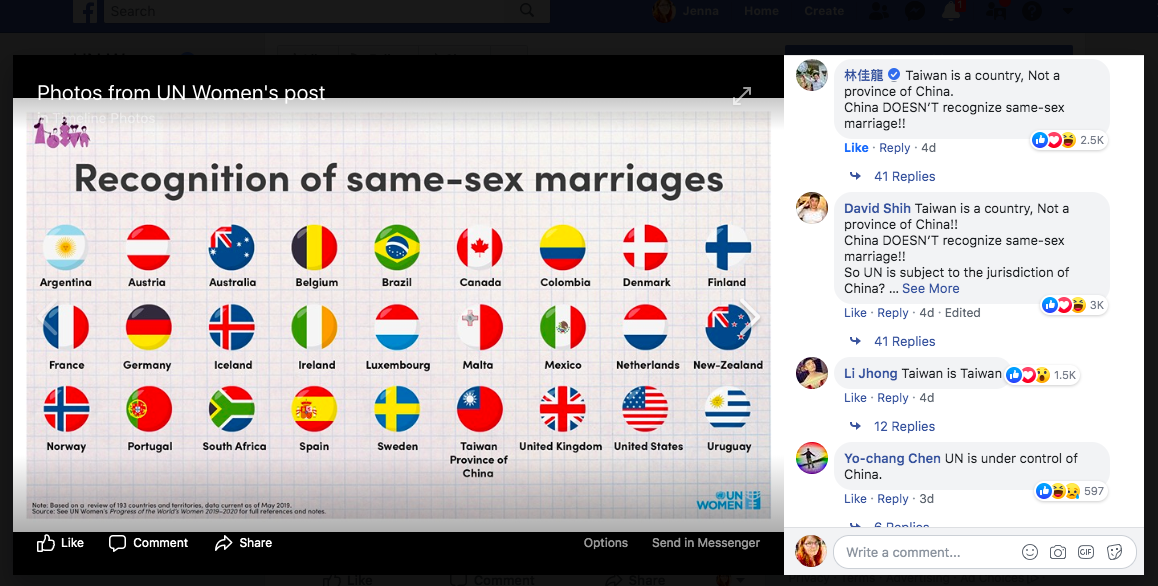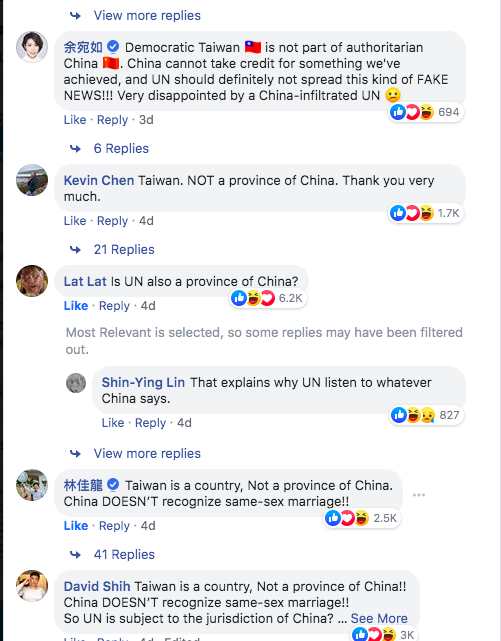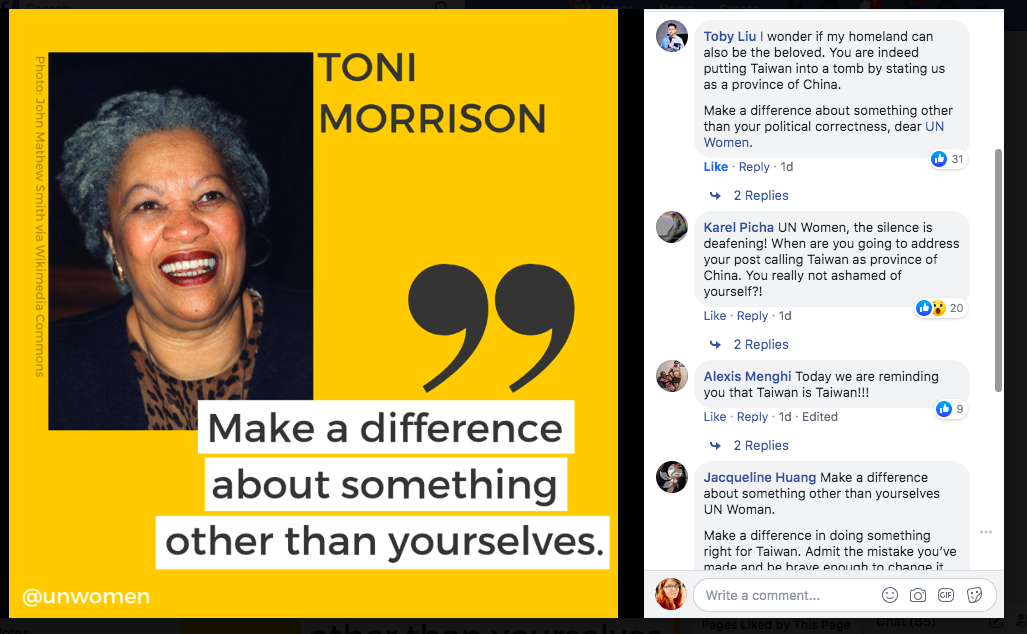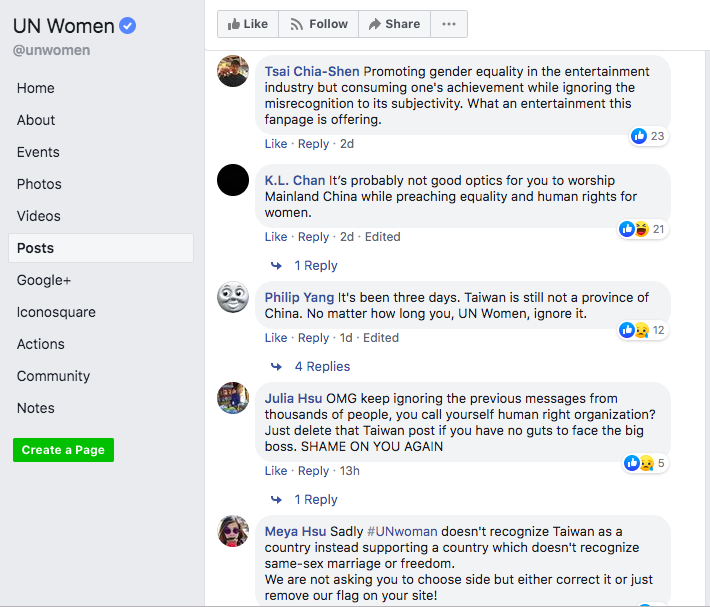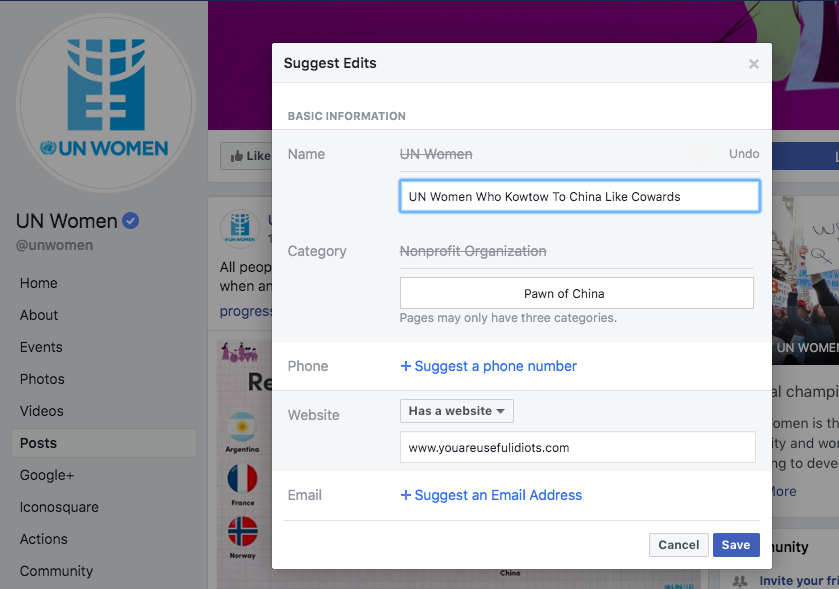 |
| I've used this as a cover photo before, and probably will again. I hope someday it might actually be true. |
With the resurgence of protests in Hong Kong after China's announcement of a Beijing-imposed national security law which will certainly curtail the relative (but dwindling) freedoms that Hong Kongers currently have, there has been a lot of discussion in Taiwan on the degree of assistance the country can provide to Hong Kong. In particular, the discussion has focused on whether and how Taiwan might go about allowing political refugees to settle in Taiwan.
President Tsai's remarks on the matter, while hitting all the right notes in terms of promising that Taiwan will do what it can, have not offered much in the way of specific plans for this assistance. At the moment, Taiwan has no laws regarding refugees, nor a process for applying for political asylum. Regarding Hong Kong specifically, Article 18 of the Act Governing Relations with Hong Kong and Macau says that Taiwan may "help" residents of these two cities if their political freedom is in danger, but doesn't specify what that "help" would be (nor what would constitute a threat). The act provides special status to Hong Kong and Macau, allowing for greater investment and a popular immigration scheme. I know someone whose family immigrated this way when he was a child, and he holds both ROC nationality and a Hong Kong ID card.
While the TPP (Taiwan People's Party) has proposed amending Article 18 to specifically allow for political asylum (see link above), Tsai is moving cautiously. Previously, the Tsai administration had said that current laws were sufficient to determine whether to allow dissidents to settle in Taiwan on a case-by-case basis, though whether this still holds true is highly questionable. Furthermore, Tsai has announced that Hong Kong's (and presumably Macau's) special status may be revoked, which wouldn't even allow for the vague promise of "help" in the relevant act - Hong Kongers and Macanese would be treated like any other citizens of China.
So, as it stands now, there are surely plenty of Hong Kongers looking at Taiwan as a place they might run to if things get really bad, which they probably will, and Taiwan has no mechanism by which to aid them, despite promising some unclear form of "assistance".
Of course, it's more legally complicated than that, but I really don't want to get into the legal complexities of separating the notion of "Hong Kong" from the notion of "China" (or the PRC) under ROC law. I'm not qualified and honestly, I'm sure if Taiwan really wanted to create a mechanism for Hong Kong refugees, it could do so.
Public opinion in Taiwan remains somewhat divided. I have no data to back this up, but I would guess that most Taiwanese support Hong Kong's struggle in an abstract way. Surely they are aware that China's actions in Hong Kong are a look into the future that the authoritarian hell-state has planned for Taiwan. Surely, when it comes to individuals who need to get out, most Taiwanese would believe that their country should be a safe harbor for them. Surely, many Taiwanese recognize that while Hong Kong may not want 'independence' as much as Taiwan does - it was never part of the protesters' famous 'five demands' - they share a common enemy and their struggles are therefore linked in some way.
However, there are questions regarding the safety of allowing large numbers of refugees in - surely, Beijing would attempt to plant as many agents in that influx as possible. Furthermore, allowing a stream of Hong Kongers, who can naturalize more easily than foreigners like me, to potentially gain the right to vote has some people questioning the wisdom of large-scale resettlement. In theory, enough of them may maintain a 'Chinese' identity (rather than a Taiwanese one) that they'd support unification with China, were it to democratize. For many Taiwanese, however, their identity exists independently of China, meaning they would not support unification under any circumstances and wouldn't appreciate a population of newcomers who might feel differently.
Some Taiwanese might even feel that, until fairly recently, Hong Kongers looked down on Taiwan - while I can't personally comment on this, I can imagine it happening, and do believe it's happened - as sort of 'country cousins' who were relatively less prosperous. Now that Taiwan as emerged as a freer and more equal society, Taiwanese who have experienced this attitude from Hong Kong might be thinking - "oh, you mocked us for decades and now you want our help?"
And, of course, some feel that Taiwan is always expected to give to others, but is castigated when it looks out for its own self-interest and makes decisions that are best for itself as a nation, rather than feeling obligated to always absorb the suffering of others.
Should Taiwan feel obligated to assist Hong Kong, potentially allowing refugees to settle here? No.
Is it the right thing to do anyway? Yes.
Hong Kong is, unfortunately, legally a part of China. Taiwan is not. Taiwanese, by and large, don't identify as Chinese. Hong Kong is beginning to catch up in this regard, but you'll still meet plenty of Hong Kongers who identify as Chinese, especially among the older generations (not so much the younger ones). In that way, Taiwan doesn't 'owe' Hong Kong anything, any more than any other nation - they are two different countries with two different identities, after all. To her credit, Tsai did not use Hong Kong protesters as props during her re-election campaign - the connections between her vision for Taiwan and the struggle for freedom in Hong Kong were made entirely by supporters (and rightly so - but that does not change the fact that this was not Tsai's strategy).
However, Taiwan under Tsai has made it clear that it wants to be a beacon of freedom and democracy in Asia. Tsai has said clearly that Taiwan is independent, and outlined what kind of country it ought to be - one where liberal values can merge with local culture and be the stronger for it. This isn't a question of what Taiwan 'owes' Hong Kong, which is nothing. It's a question of what kind of country Taiwan wants to be.
I do think that liberal democracies should strive to be safe harbors for those persecuted under authoritarian regimes. That means that, while Taiwan isn't specifically obligated to Hong Kong, the liberal democratic world as a whole is. As a part of that world, I hope that Taiwan will see that it would simply be the ethical thing to do. That said, this means that other nations - the UK especially, as they helped create this mess, but not only them - should also step up and support Hong Kong in the same way. After all, while Taiwan and Hong Kong bear the brunt of China's aggressive expansionism, the CCP is a common enemy to us all.
The fear of Chinese 'plants' among fleeing Hong Kongers is real, and reasonable. The CCP will almost certainly try this. However, I have never met a proponent of helping refugees, in any country, who believes that every last one should be allowed in with no vetting process. Vetting processes are rarely discussed, but they do exist in the United States - well, they did back when the United States cared about refugees - as elsewhere. Of course, Taiwan's vetting process needs to be ironclad. Nobody can reasonably argue otherwise. Of course, any political asylum process would have to take into account what's best for Taiwan, first and foremost. Nobody can reasonably argue against that, either.
I'm in favor of rules and procedures surrounding the process, to make it safe and tenable. But to support that, one must support their being a process at all, which there currently isn't.
I'm less worried about a 'loss' of Taiwanese identity. While cultural and identity barriers are often unclear, there is a 'thing' we might label as 'Taiwanese identity'. I couldn't tell you where it begins and ends, but I can say that I'm not included in it, which means the border must exist. But, one thing I have come to love about this country is that identifying as Taiwanese has the potential to be more fluid, as it is a more multicultural society than people realize (just because most of the cultural groups within it look generally 'Asian' does not mean they are the same). It's the sort of country where, perhaps, someday, the words on the welcoming sign at the National Museum of Taiwan History might actually be true:
All those who identify with and are concerned about Taiwan, who love and accept Taiwan, and who wish to live together in this land can declare with a loud voice "I am a Taiwanese".
This posits a civic rather than ethnic identity (in fact, the entire passage argues against an ethnic identity for Taiwan, both practically and ethically), where perhaps shared cultural norms and perceptions play a part, but shared values do too, and who your parents were doesn't have to matter as much.
I'd like to think that someday, with luck, that this could include me, though I wouldn't be so arrogant as to claim it does now. It has come to include the descendants of the KMT diaspora who wish to claim it, many of whom - especially the younger ones - have come to identify as Taiwanese and support Taiwanese nationhood. So why not Hong Kong refugees and their descendants, too?
That is to say, Hong Kong refugees might not arrive thinking of themselves as Taiwanese, but that does not mean they won't come to identify that way someday. The person I know who emigrated here as a child considers himself Taiwanese, after all.
As for any Hong Kongers' previous superiority complexes, my personal feeling (though I have absolutely no right to insist on this) is that it shouldn't cloud the question. I understand the hard feelings, but Taiwan has proven itself, period. It's shown that it is simply a great nation and open society, and can do great things, it is the inferior of no one, and there is no basis to treat it as such. It's the envy of Asia with its democratic values and the envy of the world in its coronavirus response. The point is clear and it doesn't need to be made through excluding refugees.
That said, the TPP is also wrong: Article 18 isn't the issue. If Taiwan wants to be a model of liberal democracy, and liberal democracies around the world have a moral imperative to accept refugees - which I believe they do - then there should be an asylum process that is theoretically accessible to people from anywhere, not just Hong Kong and Macau.
There is no obligation. Nobody 'owes' anyone anything. Taiwan doesn't 'have to' do this, just as nobody 'has to' help others in need. I understand the source of disquiet or unease surrounding the issue, and I am sympathetic to the concerns of people who don't necessarily support this.
But, considering the kind of country Taiwan clearly wants to be, and the country I truly believe it can be (and in many ways already is), I think it would simply be the right thing to do.
Just do it properly, with proper vetting and other procedures. Taiwan is a capable, successful country. It can surely pull this off.


